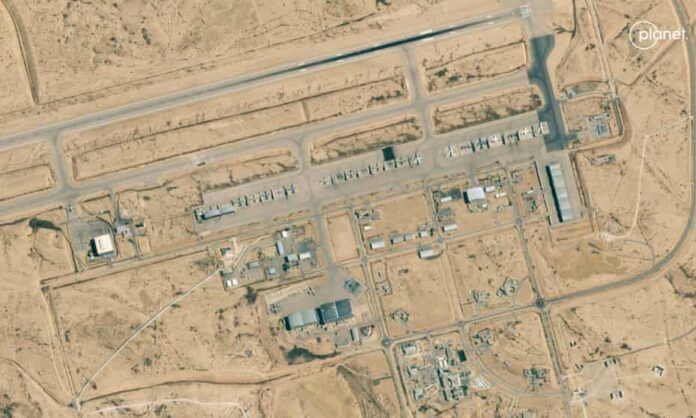Escalation with Iran could be risky: Israel is more vulnerable than it seems
Following a recent Iranian missile attack on Israel, which launched over 180 missiles at various Israeli targets, Israeli officials initially reported minimal damage and claimed their defenses had held firm. However, new analysis suggests the impact may have been more substantial than the Israel Defense Forces (IDF) originally acknowledged, potentially complicating Israel’s plans for a swift retaliation.
Satellite and social media footage revealed that several missiles struck the Nevatim airbase in Israel’s Negev desert, triggering secondary explosions and demonstrating the limitations of Israel’s Iron Dome and Arrow missile defense systems. Although the missiles did not cause significant damage or directly impact high-value assets like the F-35 fighter jets housed at the base, analysts warn that similar strikes on densely populated areas or vital infrastructure could be far more devastating.
READ ALSO: Can Israel destroy Iran’s nuclear facilities by itself?
Decker Eveleth, an analyst with CNA, emphasized that Iran’s capability to hit Israeli targets underscores the country’s vulnerability. “Iran could choose a different target – say, a densely packed IDF ground forces base, or a target within a civilian area – and a missile strike there would produce a large number of casualties,” he stated.
The economic strain of sustaining missile defenses in a prolonged conflict is also a concern for Israel. Advanced missile defense systems like the Iron Dome are costly to operate, and repeated exchanges with Iran could exhaust resources and weaken Israel’s defensive capabilities over time. As tensions continue, Israeli leaders are considering a more decisive counterattack on strategic Iranian military infrastructure to diminish Iran’s offensive capabilities. Targeted sites may include Iranian Revolutionary Guard Corps facilities or energy hubs, which, if struck, could prompt further retaliation.
Israeli Prime Minister Benjamin Netanyahu has consistently voiced concerns about Iran’s ballistic missile program, equating its threat level to that of Iran’s nuclear ambitions. With a retaliatory strike imminent, US Central Command Commander Gen. Michael Kurilla is expected to arrive in Israel for direct consultations on the matter. US President Joe Biden and his security adviser, Jake Sullivan, are also engaged in discussions with Israeli officials regarding the potential responses. While options on the table include striking Iranian military facilities, oil refineries, or even elements of Iran’s nuclear infrastructure, Tehran has warned that an attack on its nuclear program would cross a significant “red line.”
Ali Vaez, Iran Project Director at the Crisis Group, cautioned against a symbolic or limited Israeli response, noting that such actions would likely lead to further escalations. He foresees a scenario where continued strikes between Israel and Iran could spiral into a broader conflict, potentially involving the United States. “Iran has used their most advanced weapons, and they have sufficient stockpiles for sustained attacks,” Vaez noted. “That would be the world we’ll be living in unless somebody pulls the plug on this cycle of escalation.”
The only person with that power is the President of the United States, whose track record doesn’t give us a lot of hope.
Follow the Neptune Prime channel on WhatsApp: https://whatsapp.com/channel/0029Va74ZvU2v1IqKByXoX3d
Do you have breaking news, interview request, opinion, suggestion, or want your event covered? Email us at neptuneprime2233@gmail.com
Follow the Neptune Prime channel on WhatsApp:
Do you have breaking news, interview request, opinion, suggestion, or want your event covered? Email us at neptuneprime2233@gmail.com





